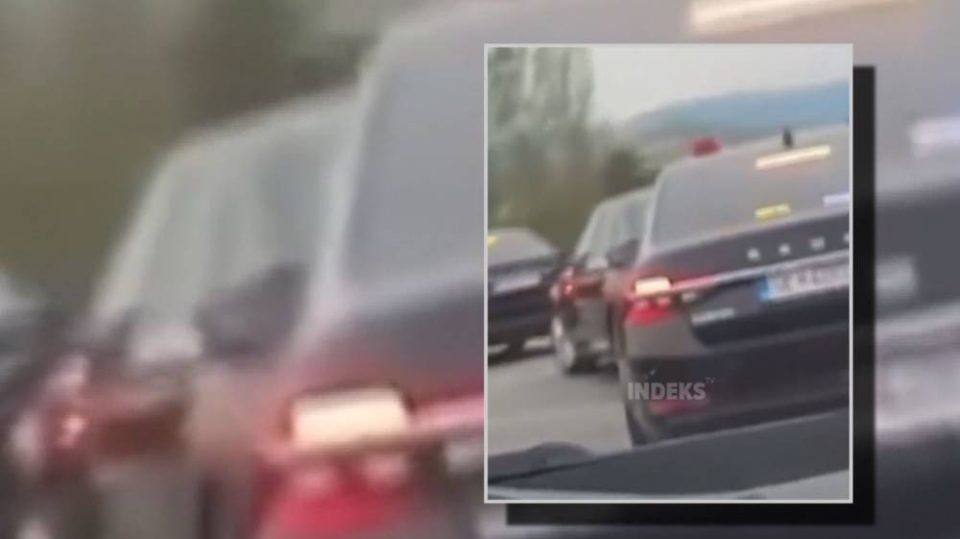North Macedonia’s parliamentary speaker, Afrim Gashi, attended the opening of the “Teuta” traditional song festival on Saturday evening. His arrival led to the near-total shutdown of traffic for almost an hour, creating gridlock in the capital’s already congested streets.
Similar disruptions occurred between 2017 and 2024, when Talat Xhaferi served as speaker. Because he lived in Gostivar, about 60 kilometers from Skopje, the highway leading into the capital was often blocked in the early morning hours, causing long delays and heavy congestion.
Blocking roads for the movements of high-ranking officials, including the parliamentary speaker, is a common practice in North Macedonia and across the Balkans. Authorities defend the measure on security grounds, while many citizens see it as an unnecessary luxury that disrupts daily life.
Protocol protection is enshrined in the country’s constitutional system: the parliamentary speaker is the third-highest state official and assumes some presidential duties in the event of an institutional crisis. The Interior Ministry provides motorcades, special police escorts and temporary road closures. The stated goal, officials say, is to ensure “fast and safe movement that minimizes risk.”
Such practices, however, are not universal in Europe.
In Central and Eastern Europe — in countries like Croatia, Serbia and Bulgaria — motorcades and traffic blocks remain frequent, often accompanied by heavy police presence. Historical instability and political tensions are cited as reasons for maintaining high levels of protection.
Western and Northern Europe take a different approach. In Denmark, Sweden and the Netherlands, officials often travel with minimal visible security, sometimes by public transport or bicycle. Security culture there relies on discreet protective services rather than visible roadblocks.
France, Germany and the United Kingdom provide robust protection for presidents and prime ministers, but without paralyzing public traffic. Instead, they rely on special vehicles and tactical measures designed to minimize the impact on citizens.
Critics in North Macedonia argue that the roadblocks are a relic of the past and create a sense of distance between officials and the public. True Europeanization, they say, begins with how leaders behave — not only with photo opportunities or passing laws under the EU flag.



